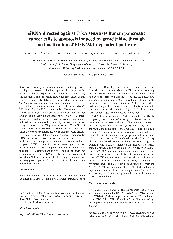摘要
Previously, we have documented that the aggressive and highly metastatic behavior of pancreatic cancer may be due to the aberrant expression of nerve growth factor (NGF) and its high-affinity receptor, proto-oncogene TrkA. In this study, we sought to determine the effect of suppressing TrkA expression on pancreatic cancer chemosensitivity to gemcitabine. Human pancreatic cancer cell lines PANC-1, MIA-PaCa-2 and ASPC-1 were studied. The expression and kinase activity of TrkA were determined by Western blot analysis and in vitro kinase assay respectively. RNA interference was used to suppress TrkA expression. Gemcitabine-induced cytotoxicity was determined by tetrazolium reduction assay and caspase profiling was performed. The effect of TrkA-specific siRNA on PI3K/Akt activity was also quantified. TrkA expression and kinase activity in cell lines were directly correlated with gemcitabine chemoresistance. TrkA-specific siRNA suppressed TrkA expression and kinase activity, and furthermore increased gemcitabine-induced, caspase-mediated apoptosis. PI3K/Akt activity was decreased by suppression of TrkA expression. Taken together, these data demonstrated that TrkA is a determinant of pancreatic adenocarcinoma chemoresistance and PI3K/Akt is a key signaling component by which NGF activation of the TrkA signal transduction pathway protects pancreatic cancer cells from chemotherapy-induced cell death.
- 出版日期2007-9
- 单位西安交通大学
